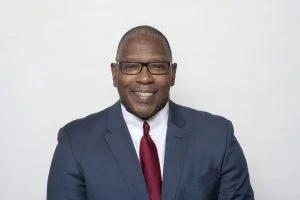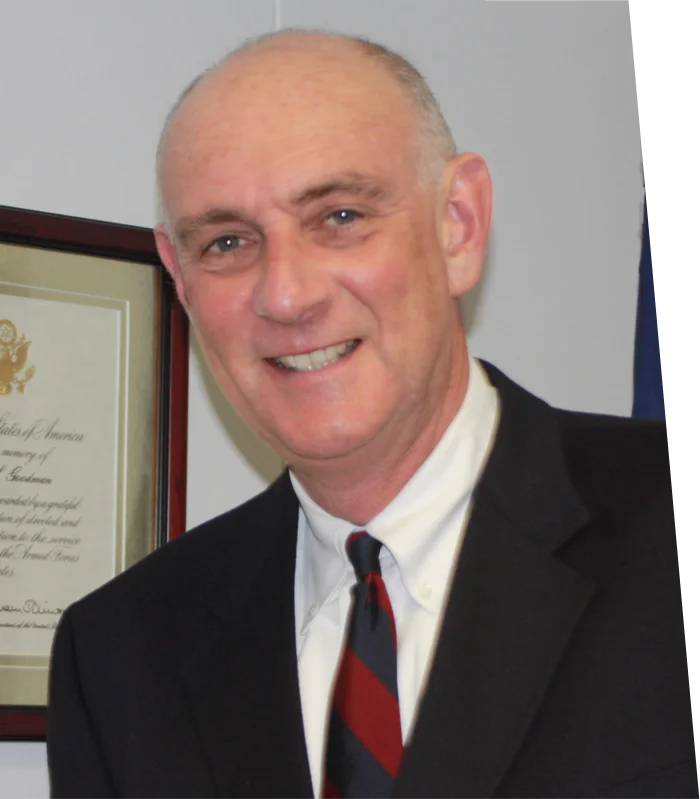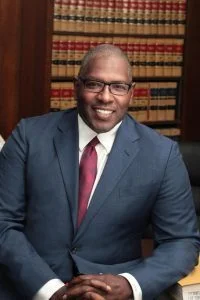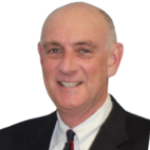|
|
Last Modified on Jun 18, 2024
Hello and welcome to Love Thy Lawyer will talk to real lawyers about their lives in and out of the practice of law, how they got to be lawyers, and what their experiences have been. I’m Louis Goodman, the host of the show, and yes, I’m a lawyer. Nobody’s perfect. He heads the Division of Diversity, Equity and Inclusion at the Alameda County District Attorney’s Office. He prosecuted the infamous Riders case involving Gross Misconduct by the Oakland Police Department. accepted to Cal on the basis of academic excellence. He walked onto the football field and started as a sophomore. He served as vice president of the National Bar Association, and president of the Charles Houston Bar Association. He has mentored countless young lawyers, law students and college athletes. Terry Wiley, welcome to Love Thy Lawyer.
Terry Wiley: Glad to be here.
Louis Goodman: It’s a real honor to have you. tell me what exactly is your position these days?
Terry Wiley 1:17
Well, so I am currently officially an Assistant to District Attorney’s from the number three ranking District Attorney in the Alameda County District Attorney’s Office. And I my current assignment is I was named the Director of Diversity, Equity and Inclusion in November of 2020.
Louis Goodman 1:38
Where exactly are you physically located?
Terry Wiley 1:43
Physically located at the main courthouse at Rene C Davidson Courthouse by Lake Merritt on the ninth floor.
Louis Goodman 1:53
Now you’ve been in the district attorney’s office for how long?
Terry WIley: 30 years
Louis Goodman: Where are you from originally?
Terry Wiley 2:01
So I’m from San Jose, California. I was born on Travis Air Force Base in Fairfield, California. My dad was a career military man. So when Eisenhower integrated the Air Force, he immediately transferred from the Army to the Air Force. And so he our cam was he in in our family were stationed at Travis Air Force Base in Fairfield and my brother, my twin brother was born. And we’re, you know, I’m an identical twin.
Louis Goodman 2:35
Is your identical twin a lawyer too?
Terry Wiley 2:38
No, he’s in technology.
Louis Goodman 2:43
Where did you go to high school?
Terry Wiley 2:46
I went to high school at Santa Teresa High School in San Jose. A lot of people think it’s, you automatically think it’s a Catholic School because it’s Santa Teresa, but it’s a public school in San Jose. It was built on Santa Teresa Boulevard. So Santa Teresa High School, but a public high school in South San Jose.
Louis Goodman 3:07
How was your experience in high school?
Terry Wiley 3:09
You know, it was interesting, Lou, you know, we were raised when we first moved to San Jose, we lived in East San Jose, which was predominantly hispanic and black. And I think by the time we got into sixth grade, we started noticing a just a real lack of challenge academically in school. And so we complain to my mother about the just the role, the lack of challenge, you know, on pretty much a daily basis. And so my mom moved our family out to South San Jose, which was about 80%, white, and 20% other, you know, Hispanic, Asian, and Black. And then there were very few blacks in South San Jose.
Louis Goodman 3:57
What was that like for you coming from like a predominantly African American Hispanic place, and then going to someplace that was really, predominantly white,
Terry Wiley 4:08
Was a couple of adjustments we had to make. One was that we were behind. So it took us about six months to catch up with everybody else and where they were academically. And so, you know, and we’ve just found the academics were a lot more challenging. And it was just a much better education system. And it was also interesting, because, we were athletic, and we also came from a very, an environment that was very competitive, very. It was a we came from a much more challenging environment in terms of, you know, the people that you’re growing up around are just a lot tougher. For and so when we got to South Central, I think the guys in South San Jose learned pretty quick that, you know, we were he didn’t want to mess with the two twins. So we had to make an adjustment, but they also have to make an adjustment and never just kind of like, you know, mess with those two. But you know, and then I mean, but once we made the adjustment, it was a great place to grow up. I mean, it was, I feel like the public schools in San Jose, at least in South San Jose were excellent. And teachers that really supported you. It was just great. I mean, I had a great experience growing up out there.
Louis Goodman 5:47
When you graduated from high school, where’d you go to college?
Terry Wiley 5:51
The reason I went to Cal is because when I was 15 years old, I kept hearing about this Ohio State University, Ohio State, Ohio State reading in the paper, and Ohio State was playing CAL. And we were living in San Jose, and my mother looked at me and my brother, like we were crazy. When we asked her could she take us up to Berkeley to go watch the Ohio State, Cal game? And she’s like, No, I’m not driving all the way up to Berkeley. And so I grabbed all the money that I had. And I went and caught a Greyhound bus from San Jose to downtown Oakland, and then I caught AC Transit to Berkeley. And I made my way up to Pill Hill. And I watched for the Ohio State/CAL game from Pill Hill. The running back, who was a freshman with Ohio State was Archie Griffin. Well, know who went on to two Heisman trophies. That experience is what led me to say, Okay, this is where I am going to go to school, at this university. My experience at CAL and just the education that I received. I mean, it really changed my own personal trajectory, but it really kind of changed the trajectory of my whole family. Because I was me and my twin brothers were the first ones to, you know, go to a four year school, graduate, and then go on to graduate school, in my case, I went to law school. And so today, I’ve got probably 18 of my nieces and nephews of all graduated from college.
Louis Goodman: Oh, that’s fantastic.
Louis Goodman 7:40
Now that really is something isn’t it?
Terry Wiley 7:43
Yeah. So it really impacted my whole family. And my niece just graduated from law school. So they will all tell you that they were all watching me and my brother, you know. And so I mean, I love Cal for a number of reasons, because I always tell people Cal changed my life, and it changed my family’s life.
Louis Goodman: You walked onto the football team there at Cal?
Terry Wiley: I did.
Louis Goodman 8:14
What prompted you to do that?
Terry Wiley 8:16
Well, because I mean, I just felt like, you know, had not been for the knee injury, I would have probably gotten a scholarship. I mean, I ran track at Cal . So I played football, and I ran track, and he went to school.
Louis Goodman 8:29
When did you start thinking about being a lawyer?
Terry Wiley 8:33
Well, when I actually determined I was going to be a lawyer was when I was 14. But I started thinking about it when I was about eight years old. That’s when I started thinking about being a lawyer. And then by the time I was 14, I was like, I’m going to be a lawyer.
Louis Goodman 8:51
When you graduated from Cal, did you go to law school right away or did you take a little time off?
Terry Wiley 8:57
No, I was attempting to try and have a career in professional football. And then one day, my stepfather said, Terry, look, you know, football is one of those sports where you know, either you make it or you don’t, and you’re not making it, then you need to go on to the next thing. And I listened to him, and I was like, Okay, this isn’t working out. So I want to go to law school. University of San Diego School of Law, offered me a tuition scholarship. I have tuition scholarship, and I had a great experience at the University of San Diego School of Law, great school, great people and one of my professors said, Hey, I think you should interview with the DA office. I said okay, I didn’t know much about the DA’s office. I didn’t know much about prosecutors and you know, where I grew up in my family of yours, I didn’t know anybody who wanted to be a prosecutor or a police officer. No, those were just not the things that people wanted to do.
Louis Goodman 10:08
Now, you’ve been, we’ve said this before, but I mean, you’ve been in the DA’s office for 30 years. And you obviously, are someone who has had lots of choices and opportunities. What is it that you really like about being in the DA’s office that’s kept you there for 30 years?
Terry Wiley 10:27
You know, that’s a good question. And I’ll say, what I tell people is, I didn’t really know what to expect, because I did not grow up wanting to be a DA. Didn’t really know much about even with prosecutors did in their daily jobs. But then once I became informed of what they do what I did, what I knew was that I did not want to work around people who had what I call a joke prosecutor mentality. That mentality is simply because someone is arrested or someone is charged with a crime, they must be guilty, they must be a criminal. And to my surprise, I found the exact opposite of that. And it was a great place to work. I mean, you know, in my class was Kamala Harris was in our class. And, you know, some of the people that were in the class when I was starting, you know, many of us are all still working for a District Attorney’s offices.
Louis Goodman 11:30
Well, that brings this up to you know, currently, you’re running for District Attorney, you’ve formally announced your candidacy. When did you start thinking about that as a career move?
Terry Wiley 11:44
You know, probably about, maybe five years ago, you know, I was looking at Nancy O’Malley, the current District Attorney. And, and I was looking at, you know, the folks who have been in the office with and that would be the best person to lead the office and kind of take the office beyond where it is today. And what I mean by beyond where it is today, we’re always seeking to improve, whether it be a District Attorney’s Office or whatever, you’re always seeking to improve that office. And so it really came down to who would be the best person to take the Alameda County District Attorney’s Office to the next level. And the more I thought about it, the more it was clear to me that I was that person. I have the experience and I’ve been very, very engaged in criminal justice on a number of different levels. I’m an African American voice and I’m able to communicate the African American experience as it relates to criminal justice. So I just think that when you look at my overall experience, and what I bring to the table, I think I’m the most qualified person to take over the leadership of the District Attorney’s Office.
Louis Goodman 13:12
Well, how’s the campaign going? What do you think of campaigning? What do you think about raising money? You know, how’s the whole process going?
Terry Wiley 13:19
That’s just challenging. I mean, that’s just very challenging. And anyone who’s ever run for county wide office knows.
Louis Goodman 13:29
Oh yeah, I know. We talked about this a little earlier.
Terry Wiley 13:34
And so Lou, you know, it’s extremely challenging. You know, you’re out seeking endorsements, and you’re seeking support financially. And we anticipate that this race is going to, you know, it’s going to be a million, take a million dollars to run the race. So, you know, you’re out there every day. There’s not any time that goes by, that you’re not working on your campaign. No, I mean, I’ve had, but you know, what happens lewd things happen? That really kind of speak to, especially as a prosecutor, you know, there’s been a lot of change. And I think, since the George Floyd case, there’s been a lot of upheaval within the whole criminal justice system. So when you run for an office, you really begin to find out what your career has stood for when you start asking people for endorsements that will tell you kind of their will, it won’t tell you everything, but it’ll give you an idea of where your career has been as a prosecutor. I’m happy to announce that today I received the endorsement of the icon of The Civil Rights Movement today and Attorney Benjamin Crump, who represented the family of George Floyd, he first kind of came onto the scene representing the family of Trayvon Martin. He also represented the family of Briana Taylor. And today he endorsed my candidacy for District Attorney.
Louis Goodman 15:18
Congratulations. You know, I mean, that brings up kind of an interesting question. There’s a lot of talk these days about so called woke DAs. And I’m wondering what your take on progressive as opposed to more traditional philosophies of criminal enforcement and prosecution are?
Terry Wiley 15:41
Well, I think that when you look at where their systems, where progressive prosecutors have come in, and they’re trying to change the system, when you’ve been around 30 years, there’s a couple of things you’ve learned is that there are some disparities and inequities that are just kind of baked into the criminal justice system. Okay, I mean, and I’ll just use one example, is if you’re a wealthy person, and you lose it one night, and you attempt to murder someone, if you’ve got the money, you can be out of custody The next day, if you can make bail, if you can afford to make bail. Well, on the other hand, you can be caught stealing a package of baloney and get arrested and put into custody. And you can sit in custody for 60 days, because you couldn’t make a $500 bail. So there are some inequities that are just kind of baked into the system. And that over time, you know, these disparities have a disparate impact on many communities of color, and this has been going on for decades on a number of different levels. And so I think that the progressive prosecutor has been a response to attempting to make some changes to bring more balance to our system of justice.
Louis Goodman 17:16
Do you think that the criminal justice system and let’s just talk specifically about Alameda County, do you think the system is fair?
Terry Wiley 17:25
I don’t think any criminal justice system today is completely fair. No, because and the data shows, that it’s not fair. And what we’re at, and that if you go to our juvenile hall facility, and you see predominant Black and Hispanic kids, you would think that there are no white kids that commit any burglaries, or commit any kind of criminal offense, when you see the numbers that we see. And so I think that there are there still exists, disparities, and our system of justice that we are constantly working on, we are constantly trying to find alternatives to incarcerating someone. There’s more work to be done.
Louis Goodman 18:13
Do you have a 3o second elevator speech?
Terry Wiley 18:17
My 30 second elevator speech is that when you look at Terry Wiley, the candidate for District Attorney of Alameda County versus my opponents, I think there are two things that separate me, from my opponents. One is experience and the second is proven leadership. When you look at experience, I’ve risen from a regular Deputy District Attorney to the number three District Attorney in our office.
Louis Goodman 18:46
I’m going to shift gears here a little bit, Terry, what’s your family life been like? And how is practicing law affected that and how is now that you’re running for office affected your family life? And what do they think of it?
Terry Wiley 19:00
Well, you know, my wife is very supportive because she knows that I’ve been doing this for 30 years. And so she is supportive of the whole thing. And my son is, you know, he’s had his own challenges. And so, I mean, I come to this race, with my son having also experienced some mental health issues that have led to him being system involved. And so I like I completely understand when you know, I’ll put it like this. I’ve been educated from both sides of the aisle.
Louis Goodman 19:38
What other sorts of things do you like to do? I mean, do you know I mean, you played football you were very involved with sports when you were younger, what sort of things do you do to kind of keep your sanity these days?
Terry Wiley 19:51
Yeah, what I enjoy doing is you where I see a need for service? I mean, I just love helping others. I love providing leadership. So that I stand on the shoulders of giants. You know, when I came into the Alameda County District Attorney’s Office, the members of the office who preceded me, were just giants in the legal profession. And, you know, particularly young our careers, you know, they they would reach out to us, they would give us guidance. So we stand on the shoulders of giants.
Louis Goodman 20:42
Right now, there are three announced candidates for District Attorney. I haven’t heard any word on the street about anyone else getting involved. The three candidates for District Attorney, all three of them are African American in Alameda County right now. So yeah, I’m just kind of wondering what your comment is about the notion that no matter what happens here, we’re gonna have an African American District Attorney of Alameda County.
Terry Wiley 21:13
I think it’s great. And I think it is about time. And I think that African Americans have made great contributions to Alameda County. And they’ve always made a very strong presence in Oakland, of course, and I think it’s great. I mean, I don’t know what else to say, I think it’s great. And I think it’s about time.
Louis Goodman 21:44
Let’s say you and your wife came into some real money, $3 or $4 billion, what, if anything, would you do differently in your life?
Terry Wiley 21:53
$3 or $4 billion is a lot of money. I think that I would make sure that my family is taken care of. But I would also give part of it away for you know, some philanthropic purpose to help others, because I would think that the good Lord blessed us with such a huge amount of money, not to just spend it on ourselves. But to do great with that.
Louis Goodman 22:26
Let’s say you had a magic wand, that was one thing in the world, you could change the legal world or otherwise, what would that be?
Terry Wiley 22:33
I would wave that wand and get rid of racism, because I think that some of the results, you know, just historically, has had a tremendous impact on a lot of people. And I think that would be the one thing I would, I’d want to get rid of, and so that everyone is judged by the content of their character, and not by their ethnicity, their sexual orientation, their skin color, and that people are just judged by the content of their character. And if we could live in a world where that existed, it would be a better world.
Louis Goodman 23:13
Anything else you want to talk about that we haven’t covered?
Terry Wiley: No
Terry Wiley 23:15
Well, you know, I’ll just say this, that I do think it is significant. And I’m just gonna, I’m not trying to toot my own horn. But I do think that when you look at the struggles of the criminal justice system, that many groups have had, and you’ve been a career prosecutor kind of in the middle of it, the career prosecutor would probably be the last person you would expect some of the biggest civil rights attorneys in the country to endorse their candidacy. So I do think it is significant, that John Burris has endorsed my candidacy and that Ben Crump has endorsed my candidacy. And that led me to banker, Brianna Taylor case has endorsed my candidacy. And I think it all speaks to the kind of prosecutor that I have been over the course of my career.
Louis Goodman 24:15
Terry Wiley, thank you so much for joining me today on Love Thy Lawyer. I really appreciate your very valuable time.
Terry Wiley 24:23
Lou it’s a pleasure. And I have always from the day I met you, as a young lawyer, you’ve always treated everyone with respect. And so it’s a pleasure doing your show. So thank you.
Louis Goodman 24:41
That’s it for today’s episode of Love Thy Lawyer. If you enjoyed listening, please share it with a friend and subscribe to the podcast. If you have comments or suggestions, send me an email. I promise I’ll respond. Take a look at our website at lovethylawyer.com where you can find all of our episodes. transcripts, photographs, and information. Thanks as always, to my guests to share their wisdom. And to Joel Katz for music, Brian Matheson for technical support, and Tracey Harvey. I’m Louis Goodman.
Terry Wiley 25:21
So I would call the admissions office at Cal every day. And I’ll never forget the day that I got the acceptance. And I heard one of the admissions officers say it’s that guy from San Jose, calling up here again, and I’m just telling you then, just tell him he got into the university.








